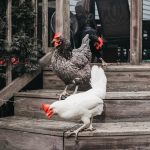Proper nutrition is essential for reptile health and well-being. Reptiles have specific dietary requirements that must be met for optimal growth and development. A balanced diet for most reptiles includes a variety of insects, fruits, and vegetables.
Insects serve as the primary protein source, with crickets, mealworms, and dubia roaches being common choices. Fruits and vegetables provide essential vitamins and minerals, with leafy greens like kale, collard greens, and dandelion greens being particularly beneficial due to their high calcium content. Supplements play a crucial role in reptile nutrition.
Calcium and vitamin D3 are especially important for bone health and proper growth. Dusting insects with calcium powder before feeding is a common practice to ensure adequate calcium intake. UVB lighting is necessary for vitamin D3 synthesis, which is vital for calcium absorption and metabolism.
Without sufficient vitamin D3, reptiles can develop metabolic bone disease, a potentially fatal condition. It is imperative to research the specific dietary needs of each reptile species, as requirements can vary significantly. Providing a diverse, balanced diet tailored to the species’ needs, along with appropriate supplements and UVB lighting, is crucial for maintaining the health and longevity of reptiles in captivity.
Table of Contents
- 1 Adequate Lighting
- 2 Clean and Comfortable Environment
- 3 Regular Exercise
- 4 Monitoring for Health Issues
- 5 Providing Calcium Supplements
- 6 Managing Stress and Anxiety
- 7 FAQs
- 7.1 What factors can affect a chicken’s egg production?
- 7.2 How can I keep my chickens laying eggs consistently?
- 7.3 What should I feed my chickens to encourage egg production?
- 7.4 How many hours of light do chickens need to keep laying eggs?
- 7.5 At what age do chickens start laying eggs?
- 7.6 What are some common health issues that can affect a chicken’s egg production?
Key Takeaways
- Proper nutrition is essential for overall health and well-being, including providing a balanced diet with essential nutrients and vitamins.
- Adequate lighting is important for creating a comfortable and stimulating environment, as well as supporting the body’s natural circadian rhythms.
- A clean and comfortable environment is crucial for promoting good health and preventing illness, including regular cleaning and proper ventilation.
- Regular exercise is key for maintaining physical and mental health, including promoting cardiovascular health and reducing stress.
- Monitoring for health issues is important for early detection and treatment, including regular check-ups and observation of any changes in behavior or physical condition.
- Providing calcium supplements can help support bone health and prevent deficiencies, especially for individuals who may not get enough from their diet.
- Managing stress and anxiety is important for overall well-being, including promoting relaxation techniques and creating a calming environment.
Adequate Lighting
UVB Lighting: A Must for Vitamin D3 Synthesis
Reptiles require UVB lighting to synthesize vitamin D3, which is essential for proper calcium metabolism and bone health. Without adequate levels of vitamin D3, reptiles can develop metabolic bone disease, which can be debilitating and even fatal.
The Importance of UVA Lighting
In addition to UVB lighting, it is also important to provide a source of UVA lighting for reptiles, as this helps to regulate their circadian rhythms and behavior. It is important to research the specific lighting requirements of your reptile species in order to provide the appropriate lighting for their needs.
Proper Placement and Replacement of UVB Bulbs
In addition to providing the appropriate type of lighting, it is also important to ensure that the lighting is positioned at the correct distance from the basking spot in order to provide the necessary UVB exposure. Different types of UVB bulbs have different recommended distances for optimal exposure, so it is important to research the specific requirements for your reptile species. It is also important to replace UVB bulbs regularly, as they lose their effectiveness over time even if they still appear to be working.
Clean and Comfortable Environment

Providing a clean and comfortable environment is essential for the health and well-being of reptiles. Reptiles require specific temperature and humidity levels in order to thrive, so it is important to research the specific environmental requirements of your reptile species in order to provide an appropriate habitat. It is important to provide a temperature gradient within the enclosure so that your reptile can thermoregulate by moving between warmer and cooler areas as needed.
In addition to providing the appropriate temperature gradient, it is also important to maintain proper humidity levels within the enclosure. Different reptile species have different humidity requirements, so it is important to research the specific needs of your reptile species in order to provide an appropriate environment. In addition to maintaining proper temperature and humidity levels, it is also important to keep the enclosure clean in order to prevent the buildup of bacteria and mold.
Spot cleaning should be done regularly to remove feces and uneaten food, and the entire enclosure should be thoroughly cleaned and disinfected on a regular basis. Providing a comfortable environment also includes providing appropriate hiding spots and enrichment items such as branches, rocks, and plants for your reptile to explore and interact with. Overall, providing a clean and comfortable environment is crucial for the health and well-being of reptiles, and it is important to research the specific environmental requirements of your reptile species in order to provide an appropriate habitat.
Providing a clean and comfortable environment is essential for the health and well-being of reptiles. Reptiles require specific temperature and humidity levels in order to thrive, so it is important to research the specific environmental requirements of your reptile species in order to provide an appropriate habitat. It is important to provide a temperature gradient within the enclosure so that your reptile can thermoregulate by moving between warmer and cooler areas as needed.
In addition to providing the appropriate temperature gradient, it is also important to maintain proper humidity levels within the enclosure. Different reptile species have different humidity requirements, so it is important to research the specific needs of your reptile species in order to provide an appropriate environment. In addition to maintaining proper temperature and humidity levels, it is also important to keep the enclosure clean in order to prevent the buildup of bacteria and mold.
Spot cleaning should be done regularly to remove feces and uneaten food, and the entire enclosure should be thoroughly cleaned and disinfected on a regular basis. Providing a comfortable environment also includes providing appropriate hiding spots and enrichment items such as branches, rocks, and plants for your reptile to explore and interact with. Overall, providing a clean and comfortable environment is crucial for the health and well-being of reptiles, and it is important to research the specific environmental requirements of your reptile species in order to provide an appropriate habitat.
Regular Exercise
Regular exercise is important for maintaining the health and well-being of reptiles. While many people may not think of reptiles as being active animals, they still require opportunities for physical activity in order to stay healthy. Providing ample space within the enclosure for your reptile to move around and explore is essential for promoting physical activity.
This can include providing climbing structures such as branches or rocks, as well as ample floor space for your reptile to move around freely. In addition to providing opportunities for physical activity within the enclosure, it is also important to allow your reptile time outside of their enclosure for supervised exercise. This can include allowing your reptile time outside in a secure outdoor area or providing supervised time inside your home or another safe indoor space.
Allowing your reptile time outside of their enclosure not only provides them with opportunities for physical activity but also allows them mental stimulation from exploring new environments. Overall, regular exercise is crucial for maintaining the health and well-being of reptiles. Providing ample space within the enclosure for physical activity as well as supervised time outside of their enclosure are both essential components of promoting regular exercise for your pet reptile.
Regular exercise plays an essential role in maintaining the health and well-being of reptiles. While many people may not think of reptiles as being active animals, they still require opportunities for physical activity in order to stay healthy. Providing ample space within the enclosure for your pet reptile to move around freely promotes physical activity.
This can include providing climbing structures such as branches or rocks, as well as ample floor space for your pet reptile. In addition to providing opportunities for physical activity within the enclosure, it is also important to allow your pet reptile time outside of their enclosure for supervised exercise. This can include allowing your pet reptile time outside in a secure outdoor area or providing supervised time inside your home or another safe indoor space.
Allowing your pet reptile time outside of their enclosure not only provides them with opportunities for physical activity but also allows them mental stimulation from exploring new environments. Overall, regular exercise plays a crucial role in maintaining the health and well-being of pet reptiles. Providing ample space within the enclosure for physical activity as well as supervised time outside of their enclosure are both essential components of promoting regular exercise for your pet reptile.
Monitoring for Health Issues
Monitoring for health issues is an essential part of caring for pet reptiles. Reptiles are known for hiding signs of illness or injury until they are quite advanced due to their instinctual behavior in the wild where showing weakness can make them vulnerable prey animals. Therefore, it’s crucial for pet owners to closely monitor their pet’s behavior, appetite, weight, skin condition, bowel movements, shedding patterns, breathing patterns, eye clarity, limb function, etc., on a regular basis.
It’s also recommended that pet owners schedule regular check-ups with an experienced exotic animal veterinarian who can perform thorough physical examinations on their pet reptiles at least once a year or more frequently if any concerning symptoms arise between appointments. Overall, monitoring for health issues plays a crucial role in maintaining the health and well-being of pet reptiles. By closely observing their behavior and physical condition on a regular basis while seeking professional veterinary care when needed ensures that any potential health issues are addressed promptly.
Monitoring for health issues plays an essential role in caring for pet reptiles. Reptiles are known for hiding signs of illness or injury until they are quite advanced due to their instinctual behavior in the wild where showing weakness can make them vulnerable prey animals. Therefore, it’s crucial for pet owners to closely monitor their pet’s behavior, appetite, weight, skin condition, bowel movements, shedding patterns, breathing patterns, eye clarity, limb function etc., on a regular basis.
It’s also recommended that pet owners schedule regular check-ups with an experienced exotic animal veterinarian who can perform thorough physical examinations on their pet reptiles at least once a year or more frequently if any concerning symptoms arise between appointments. Overall, monitoring for health issues plays a crucial role in maintaining the health and well-being of pet reptiles. By closely observing their behavior and physical condition on a regular basis while seeking professional veterinary care when needed ensures that any potential health issues are addressed promptly.
Providing Calcium Supplements

Why Calcium Supplements are Necessary
Calcium supplements can be provided through various means such as dusting insects with calcium powder before feeding them or offering calcium-rich food items like dark leafy greens or commercially available calcium supplements specifically formulated for pet reptiles.
Consulting with a Veterinarian or Herpetologist
It’s important that pet owners consult with an experienced exotic animal veterinarian or herpetologist regarding proper calcium supplementation methods based on their pet’s species-specific needs.
The Importance of Calcium Supplements for Bone Health
Overall, providing calcium supplements plays an essential role in maintaining proper bone health in pet reptiles by ensuring they receive adequate amounts through their diet or supplements.
Managing Stress and Anxiety
Managing stress and anxiety is crucial for maintaining the overall well-being of pet reptiles. These animals can experience stress from various factors such as improper handling techniques by humans or inadequate environmental conditions within their enc
If you’re looking for ways to keep your chickens laying, you might want to check out this article on chicken coop run plans from Poultry Wizard. Creating a comfortable and spacious environment for your chickens can help encourage them to lay more eggs.
FAQs
What factors can affect a chicken’s egg production?
Factors that can affect a chicken’s egg production include age, breed, nutrition, lighting, temperature, stress, and health issues.
How can I keep my chickens laying eggs consistently?
To keep chickens laying eggs consistently, provide them with a balanced diet, ensure they have access to clean water, maintain a comfortable and stress-free environment, and provide adequate lighting.
What should I feed my chickens to encourage egg production?
To encourage egg production, feed your chickens a balanced diet that includes a high-quality layer feed, supplemented with calcium and protein. You can also provide them with fresh fruits and vegetables as treats.
How many hours of light do chickens need to keep laying eggs?
Chickens typically need 14-16 hours of light per day to maintain consistent egg production. If natural daylight is insufficient, you can use artificial lighting to supplement their light exposure.
At what age do chickens start laying eggs?
The age at which chickens start laying eggs varies by breed, but most chickens start laying eggs around 5-6 months of age. Some breeds may start laying earlier, while others may take longer.
What are some common health issues that can affect a chicken’s egg production?
Common health issues that can affect a chicken’s egg production include parasites, respiratory infections, reproductive disorders, and nutritional deficiencies. It’s important to monitor your chickens for any signs of illness and seek veterinary care if needed.
Meet Walter, the feathered-friend fanatic of Florida! Nestled in the sunshine state, Walter struts through life with his feathered companions, clucking his way to happiness. With a coop that’s fancier than a five-star hotel, he’s the Don Juan of the chicken world. When he’s not teaching his hens to do the cha-cha, you’ll find him in a heated debate with his prized rooster, Sir Clucks-a-Lot. Walter’s poultry passion is no yolk; he’s the sunny-side-up guy you never knew you needed in your flock of friends!







